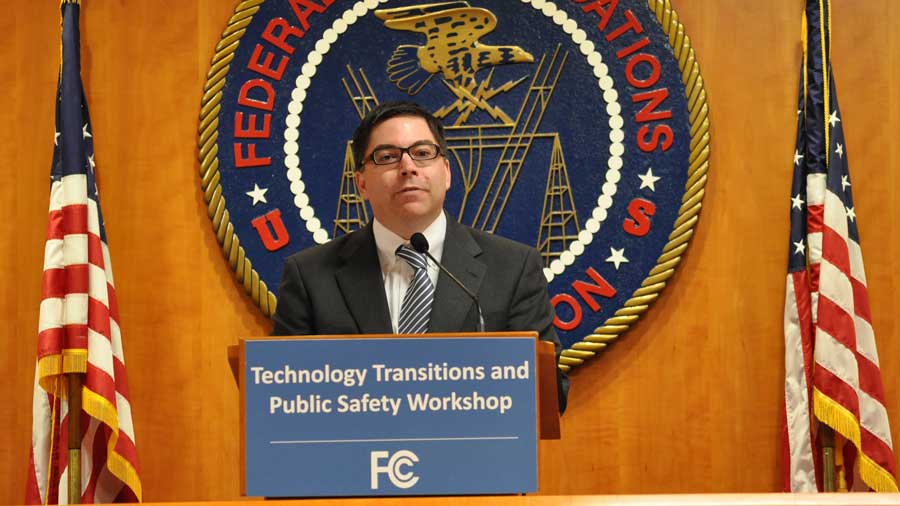FCC's O'Reilly Promotes Cap on USF Fund

The smarter way to stay on top of broadcasting and cable industry. Sign up below
You are now subscribed
Your newsletter sign-up was successful
Republican FCC Commissioner Michael O'Rielly is spearheading an effort to put the Universal Service Fund broadband subsidies on a budget, which means capping spending $11.42 billion, which he points out is "well-above current disbursement levels," and leaves a nearly $2 billion cushion for potential spending.
An item was circulated to that effect last week, setting off a storm of protest from some quarters
In a blog about the effort, O'Rielly said it was a much needed and overdue move, and dismissed its critics as "special interest groups and uninformed detractors reflexively opposed to any restraint on the agency’s redistributive subsidies."
He called it an effort to "inject fiscal responsibility" into the USF.
Related: FCC's Pai Pans USF Cuts to Small Carriers
"I believe we must set an upper limit of what we’re willing to take from hardworking American consumers to support these subsidies," said O'Rielly. "Determining this maximum level is also a necessary precondition to any effort to reform the FCC’s method for assessing USF contributions."
Critics of a cap on the fund abound.
The smarter way to stay on top of broadcasting and cable industry. Sign up below
“Latino communities need the FCC to find ways to make good on its promise to bridge the digital divide instead of perfecting ways to undermine programs working towards that goal," said Francella Ochillo, VP of policy and general counsel at the National Hispanic Media Coalition. "Arbitrary budget cuts to Universal Service Funds will disconnect Americans who are starving for digital opportunities, especially in unserved and underserved communities that Latinos call home.”
Related: O'Reilly Grills USAC on WAN Overbuilds
“This proposal may impede the FCC from making broadband affordable and accessible for all Americans, and those impacts will be felt most directly by our country’s most vulnerable communities, jeopardizing families who most need assistance connecting, students and low-income individuals who rely on internet access at schools and libraries, and families living in the most rural parts of the U.S.," said Public Knowledge Communications Justice Fellow Alisa Valentin.
"The SHLB Coalition completely agrees with the importance of fiscal responsibility, but imposing an arbitrary cap on the USF expenditures is an awkward approach that could undermine the FCC's stated 'top priority' of closing the digital divide," said John Windhausen, Jr., executive director of the Schools, Health and Libraries Broadband Coalition.
O'Rielly is having none of it.
"Based on some of the more hysterical accounts, a cap would only serve to undermine digital access and hurt the disadvantaged," said O'Rielly. "This couldn’t be further from the truth."
He said it is the lack of a governor on the fund that hurts the disadvantaged because the fund comes from fees on broadband user's bills, so raising what is in effect a tax on broadband access makes it harder for lower income households to connect.
Contributing editor John Eggerton has been an editor and/or writer on media regulation, legislation and policy for over four decades, including covering the FCC, FTC, Congress, the major media trade associations, and the federal courts. In addition to Multichannel News and Broadcasting + Cable, his work has appeared in Radio World, TV Technology, TV Fax, This Week in Consumer Electronics, Variety and the Encyclopedia Britannica.

